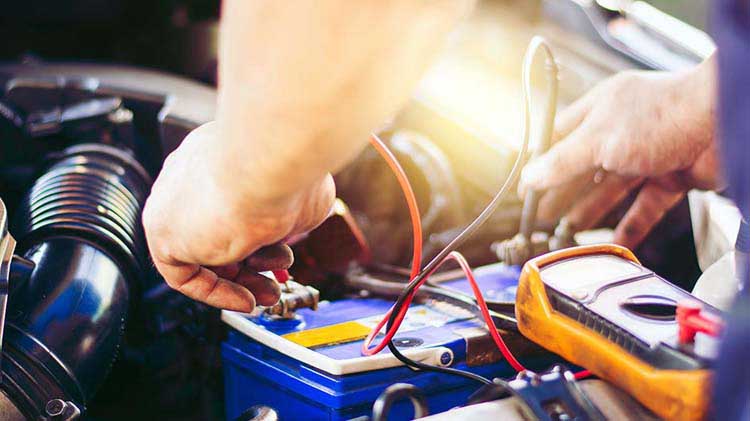Revolutionizing the Energy Industry: The Impact of Smart Grids and Lithium Batteries
In recent years, there has been a growing concern about the need to transition towards cleaner and more sustainable sources of energy. With the increasing demand for electricity and the urgency to reduce greenhouse gas emissions, the energy industry has been forced to explore new technologies and innovations. Two of the most promising advancements that are revolutionizing the energy industry are smart grids and lithium batteries.
Smart grids are a modernized version of the traditional electrical grid system. They incorporate advanced communication and automation technologies to optimize the generation, distribution, and consumption of electricity. By utilizing a network of sensors, meters, and control devices, smart grids enable real-time monitoring and management of energy flow. This allows for better coordination between power plants, renewable energy sources, and consumers, resulting in improved efficiency and reliability.
One of the key benefits of smart grids is their ability to integrate renewable energy sources into the grid. Traditional grids were designed to accommodate centralized power plants that rely on fossil fuels. However, with the increasing adoption of solar and wind energy, the generation of electricity is becoming more decentralized. Smart grids are capable of handling the variability and intermittency of renewable energy sources by dynamically adjusting the distribution and consumption of electricity. This not only reduces reliance on fossil fuels but also promotes the use of clean energy.
Lithium batteries, on the other hand, have emerged as a game-changer in the energy storage sector. Lithium-ion batteries, in particular, have gained popularity due to their high energy density, long cycle life, and fast charging capabilities. These batteries are widely used in portable electronic devices, electric vehicles, and now, in grid-scale energy storage systems.
The integration of lithium batteries into the energy industry has several advantages. Firstly, it enables better utilization of renewable energy. Energy generated from solar panels or wind turbines can be stored in lithium batteries during periods of low demand and released during peak hours. This reduces the need for backup power plants fueled by fossil fuels and allows for a more efficient use of clean energy.
Secondly, lithium batteries enhance grid stability and reliability. They provide a reliable source of power during blackouts or grid failures, ensuring uninterrupted electricity supply to critical infrastructure and residential areas. Additionally, they help balance the supply and demand of electricity, reducing the risk of power outages and grid instability.
Furthermore, lithium batteries facilitate the electrification of transportation. As the world moves towards a greener future, the demand for electric vehicles is increasing rapidly. Lithium batteries enable long-range driving, fast charging, and improved performance of electric vehicles, making them a viable alternative to traditional internal combustion engine vehicles. This not only reduces greenhouse gas emissions but also decreases our dependence on fossil fuels.
Despite these numerous benefits, there are still challenges that need to be addressed for the widespread adoption of smart grids and lithium batteries. One major hurdle is the cost. While the prices of lithium batteries have been decreasing steadily, they still remain relatively expensive compared to traditional energy storage options. Additionally, the installation and infrastructure costs associated with smart grids can be significant.

Another challenge is the need for regulations and policies that support the integration of these technologies. Governments and regulatory bodies need to incentivize the deployment of smart grids and lithium batteries through financial incentives and favorable policies. This will encourage investment in research and development, promote innovation, and accelerate the transition towards a cleaner and more sustainable energy future.
In conclusion, smart grids and lithium batteries are revolutionizing the energy industry by enabling the integration of renewable energy sources, enhancing grid stability, and promoting the electrification of transportation. While there are challenges to overcome, the potential benefits are significant. With continued advancements in technology, increased investment, and supportive policies, smart grids and lithium batteries have the power to reshape the energy landscape and pave the way towards a more sustainable future.
-
 Introduction A starter battery is an essential component of any vehicle that operates with an internal combustion engine. It provides the initial power needed to turn over the engine and start it running. However, if the battery is not properly maintained or used, it can become discharged, which can lead to a host of problems, including the inability to...En savoir plus
Introduction A starter battery is an essential component of any vehicle that operates with an internal combustion engine. It provides the initial power needed to turn over the engine and start it running. However, if the battery is not properly maintained or used, it can become discharged, which can lead to a host of problems, including the inability to...En savoir plus -
 In the booming development of China's new energy vehicle industry, the chassis battery module, as a core component, plays an important role. This innovative design not only promotes the development of new energy vehicle technology, but also ushers in a new round of changes in the global automobile industry. Chassis battery module, as the name suggests, is a design that...En savoir plus
In the booming development of China's new energy vehicle industry, the chassis battery module, as a core component, plays an important role. This innovative design not only promotes the development of new energy vehicle technology, but also ushers in a new round of changes in the global automobile industry. Chassis battery module, as the name suggests, is a design that...En savoir plus -
 As the world moves towards green and sustainable solutions, the motorcycle industry too is on the brink of a revolution. One of the mainstream dynamics it is altering pertains to two-wheel vehicle batteries. Increasingly, electric bike operations have been prioritized based on sustainability and reducing emissions-posing quite a challenge to bicycle manufacturers standing up with cutting-edge efficient solutions, and yet...En savoir plus
As the world moves towards green and sustainable solutions, the motorcycle industry too is on the brink of a revolution. One of the mainstream dynamics it is altering pertains to two-wheel vehicle batteries. Increasingly, electric bike operations have been prioritized based on sustainability and reducing emissions-posing quite a challenge to bicycle manufacturers standing up with cutting-edge efficient solutions, and yet...En savoir plus -
 In the world of renewable energy, the search for reliable and long-lasting power sources is always ongoing. One such power source that has been gaining popularity in recent years is the 100Ah 12V LiFePO4 battery. This type of battery is considered to be a breakthrough in battery technology due to its advantages over traditional lead-acid batteries. The 100Ah 12V...En savoir plus
In the world of renewable energy, the search for reliable and long-lasting power sources is always ongoing. One such power source that has been gaining popularity in recent years is the 100Ah 12V LiFePO4 battery. This type of battery is considered to be a breakthrough in battery technology due to its advantages over traditional lead-acid batteries. The 100Ah 12V...En savoir plus -
 As technology continues to advance at an unprecedented pace, innovations in the automotive industry have also surged forward. One such innovation is the 12V lithium starter battery, which is quickly gaining popularity among car enthusiasts and professionals alike. This lightweight, high-performance battery boasts numerous advantages over traditional lead-acid batteries, making it an attractive option for those looking to upgrade their...En savoir plus
As technology continues to advance at an unprecedented pace, innovations in the automotive industry have also surged forward. One such innovation is the 12V lithium starter battery, which is quickly gaining popularity among car enthusiasts and professionals alike. This lightweight, high-performance battery boasts numerous advantages over traditional lead-acid batteries, making it an attractive option for those looking to upgrade their...En savoir plus -
 As a car owner, you know how important it is to have a reliable car starter battery. Without it, your vehicle won start, leaving you stranded and unable to get where you need to go. A car starter battery is what provides the electrical power necessary to start the engine, and without it, you out of luck. There are...En savoir plus
As a car owner, you know how important it is to have a reliable car starter battery. Without it, your vehicle won start, leaving you stranded and unable to get where you need to go. A car starter battery is what provides the electrical power necessary to start the engine, and without it, you out of luck. There are...En savoir plus -
 In recent years, the demand for efficient and sustainable energy storage solutions has been on the rise. One such solution that has gained popularity is the Lithium Iron Phosphate (LiFePO4) 48V battery. This article aims to explore the features, benefits, and applications of this powerful energy storage solution. Features of LiFePO4 48V Battery: High Energy Density: The LiFePO4 48V...En savoir plus
In recent years, the demand for efficient and sustainable energy storage solutions has been on the rise. One such solution that has gained popularity is the Lithium Iron Phosphate (LiFePO4) 48V battery. This article aims to explore the features, benefits, and applications of this powerful energy storage solution. Features of LiFePO4 48V Battery: High Energy Density: The LiFePO4 48V...En savoir plus

